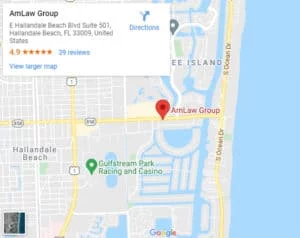The O-1 and H-1B work visas allow foreign nationals to temporarily live and work in the United States. Although both the H-1B and O-1 visas are identical in that they are non-immigrant working visas, the qualifications and application processes are quite different.
Furthermore, the O-1 and H-1B visas offer different benefits which might affect an applicant’s choice based on his or her long-term plans.
An Overview of the O-1 and H-1B Visas
Foreign nationals must have legal work authorization to work in the United States (for either a domestic or international company). One of the most prevalent ways for travelers to receive work authorization in the United States is through an employment-based visa (also known as a work visa).
The O-1 and H-1B visas are two of the most prevalent employment-based visas in the United States. Both offer skilled workers temporary work authorization, allowing them to work for a sponsoring U.S. firm. The H-1B and O-1 visas are employer-specific, which means they are only valid for one sponsoring firm. Whenever applying for a work visa in the United States, it is always necessary to have an employer prior to filing the paperwork for the visa.
Both visas are transitory and normally have a three-year work authorization limit. Both H-1B and O-1 visas can be renewed after the first validity period. However, H-1Bs can only be renewed for a total of six years, while O-1s can be renewed indefinitely. There is no limitation to the amount of time one can work on an O-1 visa. The O-1 and H-1B visas both allow visa holders to bring a spouse and unmarried children under the age of 21 to the United States.
Individuals with Extraordinary Ability (O-1) Visa
O-1 visas are classified into two types: O-1A and O-1B. Both O-1 subcategories are intended for professionals who have reached the pinnacle of their profession.
If you’re an experienced professional in sciences, arts, education, business, athletics, or the TV and movie industry and have received recognition nationally or internationally for your achievements, you could qualify for the O-1 visa. At AmLaw Group, our O-1 visa attorneys will help you find the best way to turn those dreams into a reality.
The conditions for the O-1A and O-1B visas change slightly but are generally comparable.
Benefits of the O-1 Visa:
- There is no need for a degree: You may technically be a high school dropout and still qualify for the O-1 Visa.
- There is no lottery or annual cap: Unlike the H-1B visa, there is no annual limit on the number of O-1 visas awarded. Apply whenever you want and start working whenever you want, without having to worry about being chosen in a random visa lottery.
- Criteria that are up to interpretation: Both O-1 subcategories have criteria that are variable. You can qualify for the O-1A by meeting three or more of eight flexible criteria. You can qualify for the O-1B by meeting three of the criteria, but in general these criteria are a bit easier than for the O-1A.
- Extensions are unlimited: Although the O-1 is a temporary work visa, it has the potential to become a permanent solution. O-1 visa holders are eligible to request for indefinite extensions.
- Work for a variety of companies: If you have an agent who is serving as your sponsor rather than a specific employer, then you theoretically can work for various employers based on projects or assignments your agent is able to arrange for you.
Cons of the O-1 Visa:
- Spouses are not permitted to work: Spouses of O-1 visa holders, unlike H-1B visa holders, do not have work authorization in the United States. Instead, if they want to work in the United States, they must apply for a separate work visa that would allow them to work.
- Visa applications that are lengthy and detailed: O-1 visa petitions may necessitate extensive documentation about the achievements of the applicant, including hundreds of pages of evidence.
- Minor snags when applying for a green card: On H-1B status, applying for a green card is simpler. O-1 visa holders cannot announce a purpose to immigrate to the United States when entering the country on O-1 status. Therefore, you could theoretically get denied your O-1 visa at the consulate if they suspect you would like to immigrate.
The H-1B Visa for Specialized Workers
Every year, hundreds of thousands of immigrants petition for the H-1B visa. Most employers in the United States are familiar with it, and the requirements are simple. The H-1B visa provides a few advantages that the O-1 visa does not. However, the H-1B visa has some important drawbacks that make it a less-than-ideal visa option for many immigrants.
Benefits of the H-1B Visa:
- Work authorization for spouses: On their H-4 status, H-1B holders’ wives can work for any U.S. firm.
- Simple employer transition: H-1B visa portability permits H-1B visa holders to shift jobs very quickly.
- Generic requirements: The H-1B visa is relatively simple to obtain if you have a Bachelor’s degree in an area comparable to the one in which you’ll be working.
Cons of the H-1B Visa:
- Annual visa quotas and a lottery: The H1-B visa is a “capped” visa, which means that only a certain number of new visas are available each year. Every year, the United States Citizenship and Immigration Services (USCIS) holds an H-1B visa lottery. Applicants must be chosen in the lottery before applying for the H-1B visa.
- Employers are required to pay H-1B visa holders a minimum prevailing rate based on their work title and locality. Some businesses may find this difficult.
- Strict start dates: The start date for an H-1B application is always October, regardless of when it is filed.
- The H-1B visa is only valid for three years and can only be extended once for another three years. Following that, H-1B visa holders must depart the United States for at least a year before reapplying for another visa or having an authorized I-140 and actively pursuing a green card.
Which Is Better for You: H-1B or O-1?
If you qualify for both the O-1 and the H-1B, the O-1 may be the logical decision because to its benefits. If you have a spouse who wishes to work in the United States, you may choose the H-1B visa. If you’re having trouble picking between these two visas, contact our global mobility experts right away.
To qualify for an O-1 visa, an applicant must satisfy three of eight criteria regarding the person’s achievements and recognition. These criteria relate to the awards, media coverage, recognition, and salary of the applicant. In addition, the applicant must have a job offer from a U.S. employer to qualify for the O-1.
AmLaw Group will work with you to devise the best strategy for your personal circumstances to maximize your chances for a successful transition to the U.S. for you and your family. Our extensive experience in H-1B and O-1 visas allows us to create customized solutions to allow our clients achieve their goals. Reach out to us today to discuss next steps.

Miami Office
AmLaw Group
1920 E Hallandale Beach Blvd Suite 709 Hallandale Beach, FL 33009
Dreaming of Living in the U.S.? Our Business Immigration Attorneys Can Help!
Copyright 2025 AmLaw Group - All Rights Reserved.




